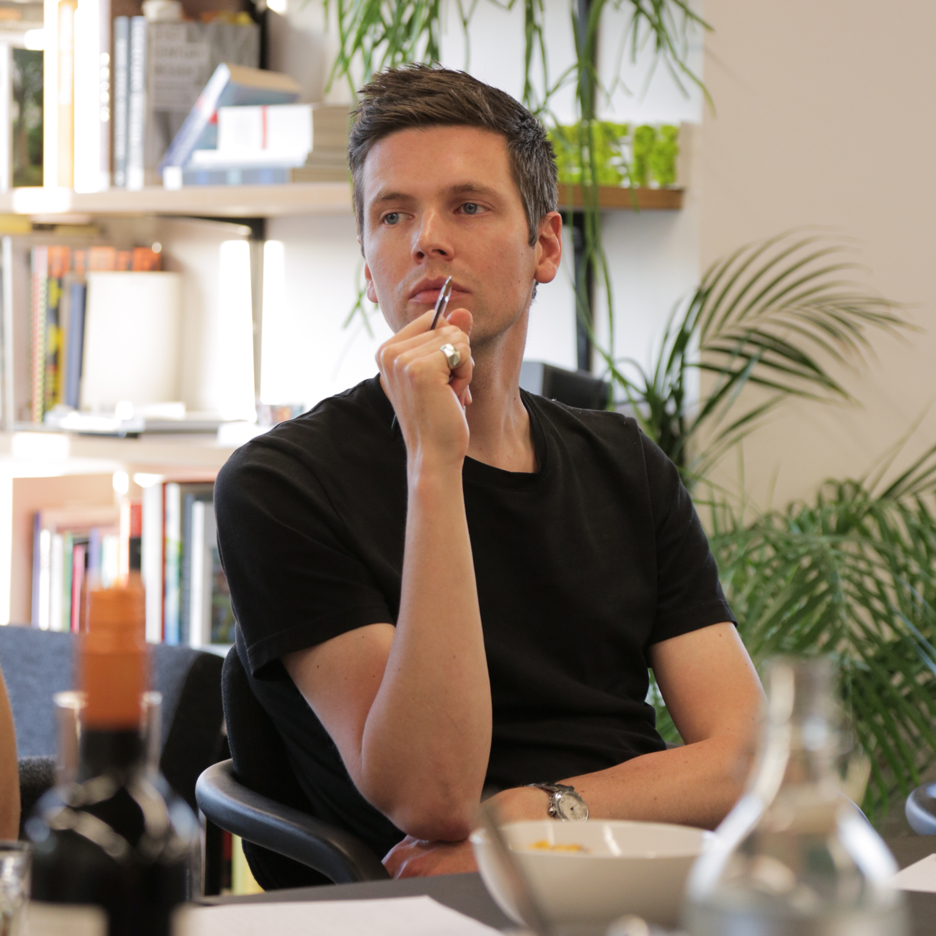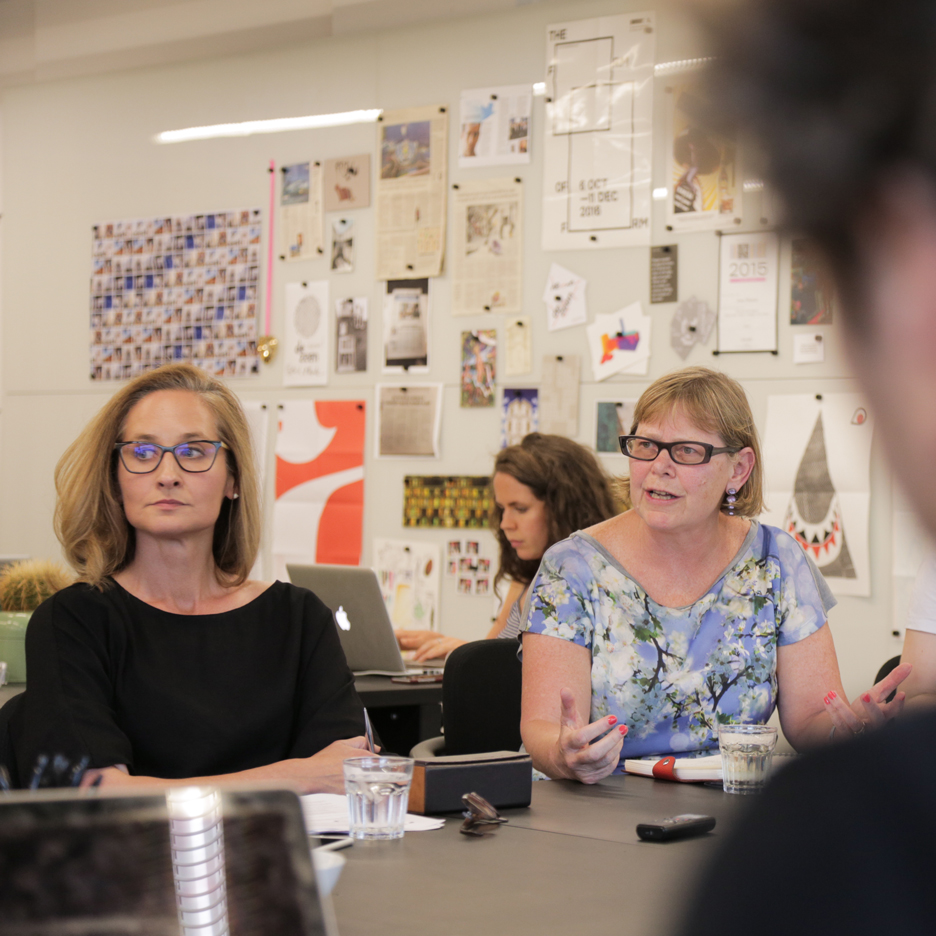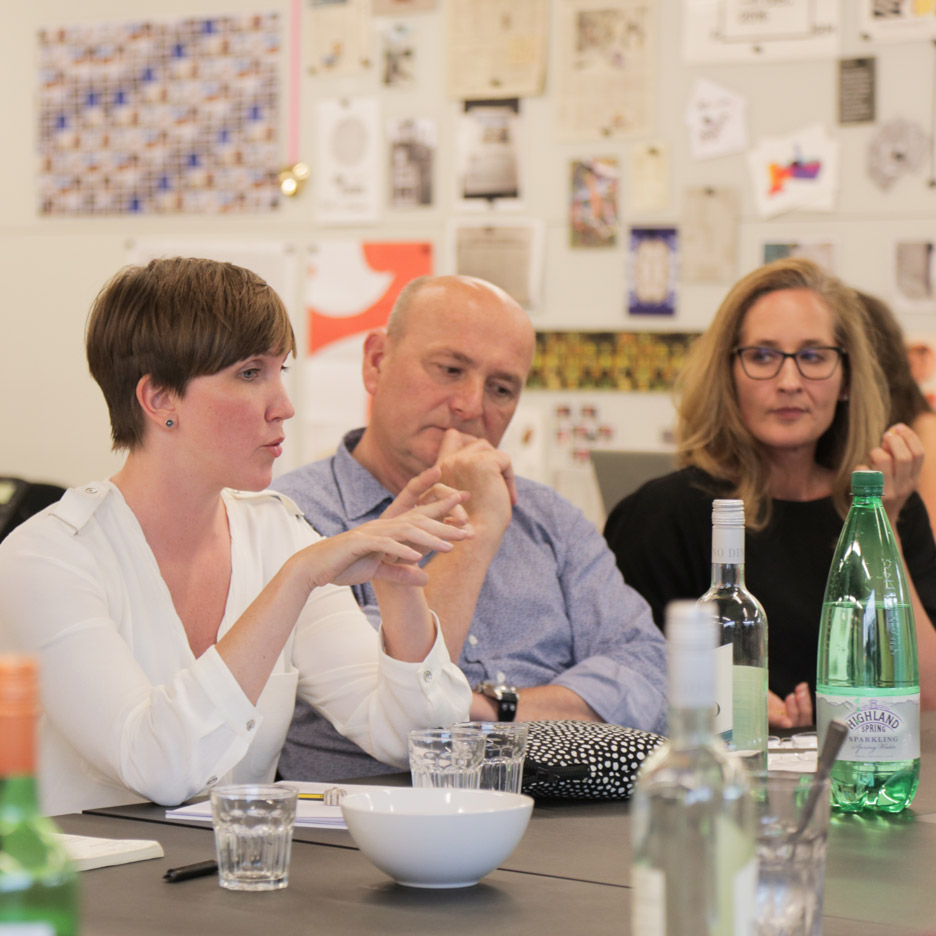UK architects and designers call for Brexit manifesto to dispel "elitist" perception
Brexit design summit: the UK's creative industries should come together to produce a manifesto explaining the benefits they bring the whole country, designers have suggested.
The industry should set out why it is important to the UK both culturally and economically, leading figures said, and present a vision for how it can thrive when the UK leaves the EU.
It can then use this to lobby the government to ensure its needs are represented in negotiations with the EU.
The calls came during Dezeen's Brexit design summit last week, and in subsequent emails from architects, designers and other influential figures who took part.

"What we have to do is present a story which is positive, without doom and gloom, that's telling a story about the design industry, what its values are, how important it is, how many people it employs," said design journalist Bethan Ryder.
"We need to connect it to the rest of the country, and not just London," said Ryder, adding that bodies such as the Design Council, the Creative Industries Federation and the RIBA should work together.
"We need to send out a message showing what [design] can do for the rest of the UK."
"The creative industries don't really have one single voice, and this is what we need more than anything," agreed industrial designer Paul Priestman.
Priestman added that the sector should urge the government to ensure there was "a climate for businesses to operate and grow successfully, regardless of what industry they operate in" after Brexit.
Judy Dobias, president of design PR firm Camron, said the response of institutions representing architecture and design to Brexit had been "really bad" compared to industries such as fashion and technology.
"Where were we? Nowhere," she said. "I think we’re bad at harnessing what we’ve got and maybe this is the time to say, you know, we need to speak more clearly about what we do."

Last month's EU referendum revealed a sharp divide between London, which voted strongly to remain in the EU, and many other parts of the UK, which voted to leave.
London is home to 40 per cent of creative businesses, according to a new report, potentially reinforcing the idea that creative businesses are part of a privileged metropolitan elite, attendees suggested.
"We are the elite and we all benefitted from post-recession London in a way that most of Britain didn't," said architect Alison Brooks.
"How do we help create a new culture of inclusivity and how do we remove design and design culture from being this elitist middle-class thing to being something that everybody understands as being their own?"
"I completely agree it can't sound like a protest from an entitled urban elite," said designer Ilse Crawford, adding that any manifesto should also reach out to the rest of Europe.
"There needs to be a clear message to Europe that as a country we are still as progressive, open-minded, talented, forward-thinking as ever, albeit with a strong strain of sceptics in our midst," she said.

Attendees argued that the UK's world-class architecture and design sector – part of a creative economy worth £84 billion per year – played a huge role in the country's perception and influence overseas, as well as benefitting the wider UK economy.
"Our inclusive creative industries have generated a huge number of offshoots industries, ranging from digital methods of manufacture, to design management to a new culture of making and design craftsmanship," said Brooks.
However departure from the EU risked damaging the sector, which relies on overseas workers and benefits from the tariff-free single market.
The future success of the sector could therefore depend on its ability to persuade government to fight its corner when negotiating exit terms with the EU, designers said.
Architect Amanda Levete said that a manifesto for design could present the sector as an exemplary industry that showed the benefits of openness and international exchange.

"I like the idea of a manifesto because it's urgent and it's quick," she said. "It's about using our world as a case study, because it clearly has flourished culturally and economically."
She added: "We have to make the case about why diversity [of the workforce] is so good for the profession and how mutually beneficial it is and how it's generated value in the economy."
"We should produce a list of 10 pragmatic points," agreed Deyan Sudjic, saying that any manifesto should not simply be a lobbying document but should have "a larger cultural ambition".
Design writer and curator Max Fraser, who helped Dezeen organise the summit and suggested the idea of a manifesto, said: "We can sit here and moan about it amongst ourselves or we can try and do something positive. Perhaps we can create some sort of a manifesto for our industry so that we can steer the exit from EU in a way that we want as an industry.
"So what can we get out of the transition?" Fraser added. "What do we need as an industry? What do we want to keep, what do we want to change, what are the opportunities? And most importantly what messages do we want to send to our government at the end of it?"
Update: the Brexit Design Manifesto was launched in September 2016. It is a message to the UK government about the importance of the architecture and design sector. To read the full manifesto and find out how to sign, visit www.dezeen.com/manifesto.